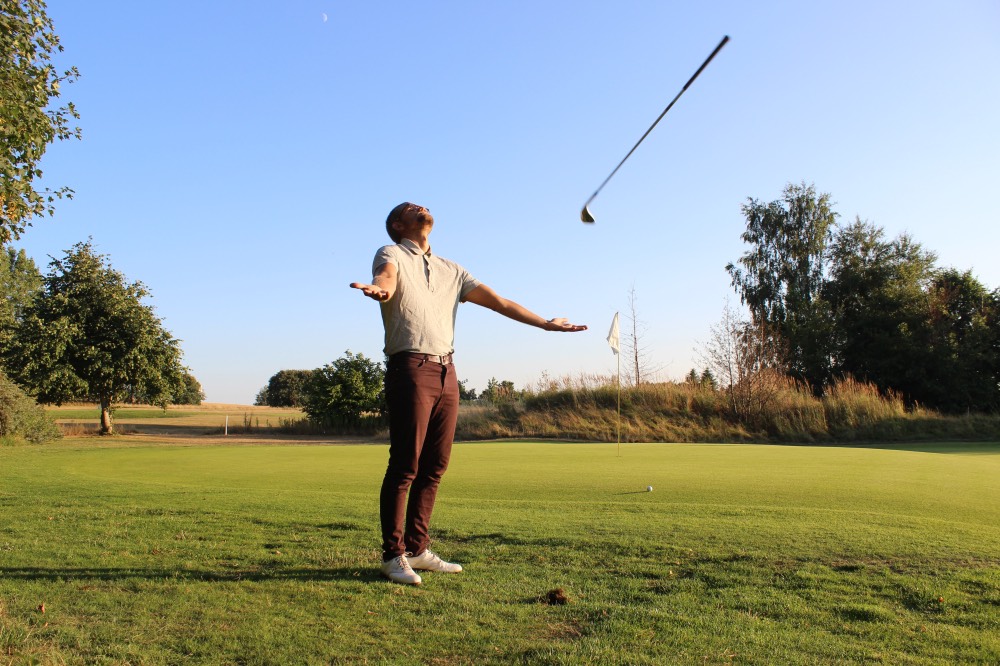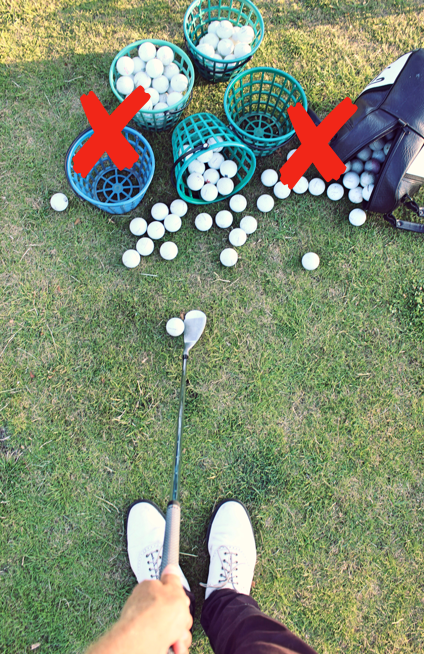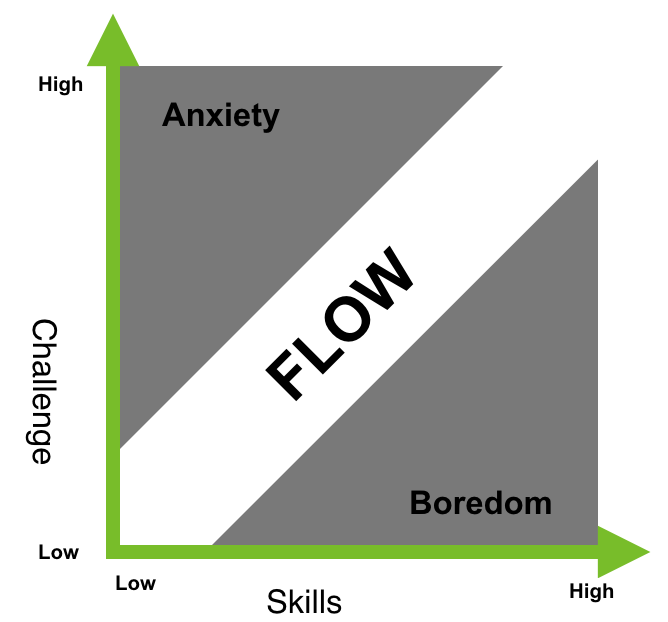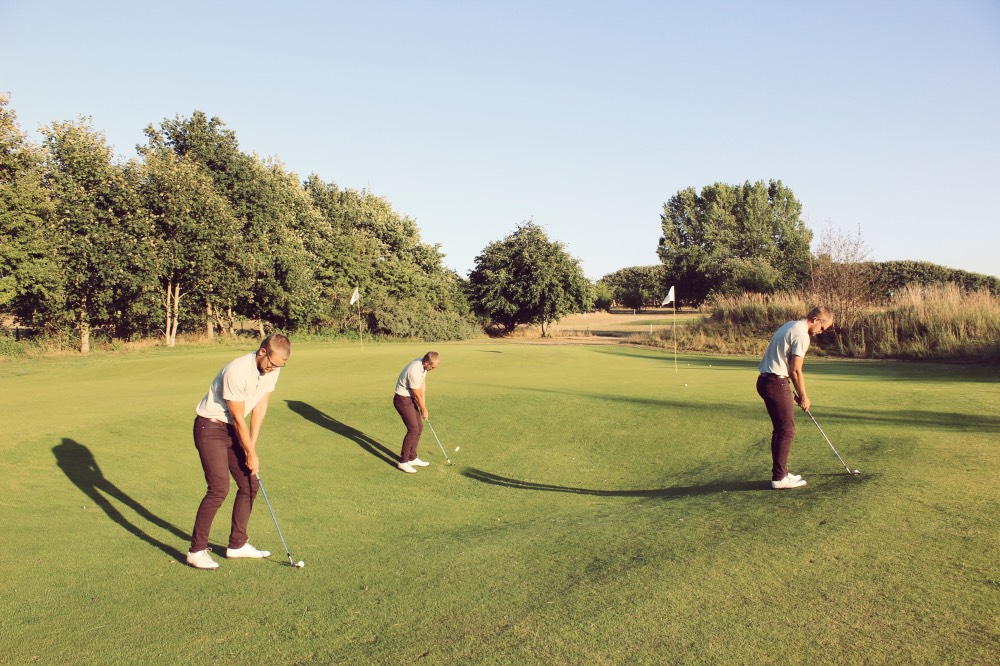- +4527976587
- mail@worldofshortgame.com

4 Reasons Why Your Short Game Doesn’t Improve, and How To Fix It

4 Reasons Why Your Short Game Doesn’t Improve, and How To Fix It
Stop Wasting Your Time!
4 reasons why your Short Game doesn’t improve, and how to fix it

Have you ever spend 20 minutes on the Short Game area, with a bucket of balls, hitting for the same flag, over and over again, and probably only moving your feet more than a meter/yard when you needed to go pick up the balls?
I’m sorry to tell you, but the truth is that you just wasted 20 minutes of your life.
Why? Let me give you 4 examples:
1. How is golf played?
First reason for that you are basically wasting your time, and doesn’t improve your short game when practicing, is that you are hitting the same shot over and over again. Think about how golf is played ON THE COURSE:
You start of a hole, with a certain club, from a tee and a flat tee-box. Next shot will probably be with a different club. Third shot with a new club again, and so it follows. You will constantly face different lie, slopes, and other conditions.
So if this is how golf is played, different shots ALL THE TIME, why are we practicing the same shot over and over again?
Some would say that it is so we can better repeat that specific shot on the course. And yes I get the idea, but science has proven over and over again that you actually perform a lot better on the course, if variation is to be found in your practice.
A very good game to try out on the short game practice area to simulate how a round of golf is played would be to do the “27 shots challenge”. This game is made of 27 shots which form 9 holes, and you will get a score on each hole relative to par, just as when you playing on the course. You can find the drill in the Free E-book Top 3 Chipping Drills

2. Constant learning is the way to success
-What is 13 x 5?
Got it? Now:
-What is 13 x 5?
Do you have the answer? Let me ask you again:
-What is 13 x 5?
Okay, you probably figured out already the first time that the answer is 65. Your brain had to do some work to figure that out right? When the brain does work, its like going to the gym and lifting weights. It gets just a tiny bit better every time.
But what about the second time? How much work did your brain need to do then? Nothing right?
And the third time it was probably the same. This means that the second and third time your brain didn’t need to do any work, and therefore no learning took place. This is the same way it works when practicing your short game (and all other parts of the game as well).
So instead of hitting the same shot over and over again, you need to change something between every shot. New hole, new club, new trajectory, a new place to hit from. In this way, you are constantly challenging your brain, and by this, you are creating new learning. Otherwise you will be stuck in you old practice habits, and never improve your short game.
A very good way to make sure that this random element is a part of your future short game practice would be to try out the 27 shot challenge, which you can find through the free e-book called Top 3 Chipping Drills – click here to download for free
3. Are you “flowing”?

Do you now that feeling that when doing something specific, nothing else really matters at that moment? 100% of your attention is focused on that specific task, whether it is cooking dinner, playing computer or practicing your golf.
Players often refer to this mental state of mind as being “in the zone”. In the zone, optimal learning takes place, your skills are developed at maximum speed and you are spending your time as effective as possible.
The principle is called “flow”, and it describes a certain state of mind a player can reach when the challenge matches the skill level of the player.
Take a look at the chart below. The skill-level is at the x-axis, and the difficulty of the challenge is at the y-axis.

If the difficulty of the challenge is very low, and the player’s skill level is high, the player will be facing boredom.
If the difficulty of the challenge is very high, and the player’s skill level is very low, the player will be facing anxiety.
None of these feelings are very good when playing and practicing golf. No one wants to fell bored when practicing, because then its not really fun right? Neither wants anyone to feel anxiety because the challenge is so difficult that they fell useless.
This means that the way you practice must be well balanced according to the difficulty of the challenge you are facing, in order to enter the flow state of mind. It may not be easy because then the player will be bored. Neither must it be way to difficult, because that can break the player completely.
A very good drill to try would be the zone-climb, which can be found in the the Free E-book Top 3 Chipping Drills. This drill is constructed in a way that it automatically makes it more and more difficult the better you perform, which makes sure that you can enter the flow state of mind easily.
One last comment about the difficulty of the challenges:
I better like to make games and drills a little to difficult than to boring. I am a strong believer the practice should frustrate you, and sometimes you should be on the edge of breaking completing. In these situations you learn so much more about yourself, and hey, isn’t it exactly those feelings you sometimes get when you play?
4. Do you dare to face the consequence?
Another thing to consider: On EVERY shot in golf there is a consequence for hitting a bad shot, and a reward for hitting a good one, that’s a fact.
A bad shot can cause penalty strokes, or place the ball in a bad position for the next shot.
A good shot will place yourself in a good position for the next shot or maybe even finish up the hole with a good score.
So tell me, why are we practicing without a consequence? I think I know the answer: Because it feels nice and good.
And yes it does feel good to hit that same shot for the same flag for an hour, knowing that if you hit a bad shot, you can just hit a new one. But does it make you any better? Does it make you better when you are out on the course? I really don’t think so.
What you should do instead is practice in a way that brings along a reward and consequent for every shot you hit. The opportunities are endless for creating games and drills that do exactly this. One of my favorite games is the 9 shot challenge game. The goal is to complete all 9 holes, starting from hole 1 and moving up. Every time you succeed with the success-criteria on a hole, you can move on to the next hole, and by this, you are closing towards completing the game (reward). But if you fail a hole, you must go a hole back, and by this, you are further away from completing the game (consequence). The game can be found in the e-book 35 Short Game Drills and Games. You can also download the Free E-book Top 3 Chipping Drills as a good start.

How will you practice the next time?
That was 4 reasons for why your short game doesn’t improve. The next time you go to the short game area, remember the following things:
-Hit different shots ALL the time.
-Let there be a consequence for hitting a bad shot.
-Let there be a reward for a good shot.

What to do now?
If you feel a bit lost in the moment about what you specifically need to do the next time you are on the short game area, I strongly recommend you to download the free e-book Top 3 Chipping Drills right now. It’s completely free and provides you with 3 easy to do drills to get started with a better practice. If you want a complete guide on how to practice your short game probably, AND 35 of the best short game drills and games, you can buy the e-book 35 Short Game Drills and Games right here. It provides you with 35 well described, challenging and exciting games and drills you can go try the moment you buy the book. Some of them can actually be done in your garden at home.
You must be logged in to post a comment.



